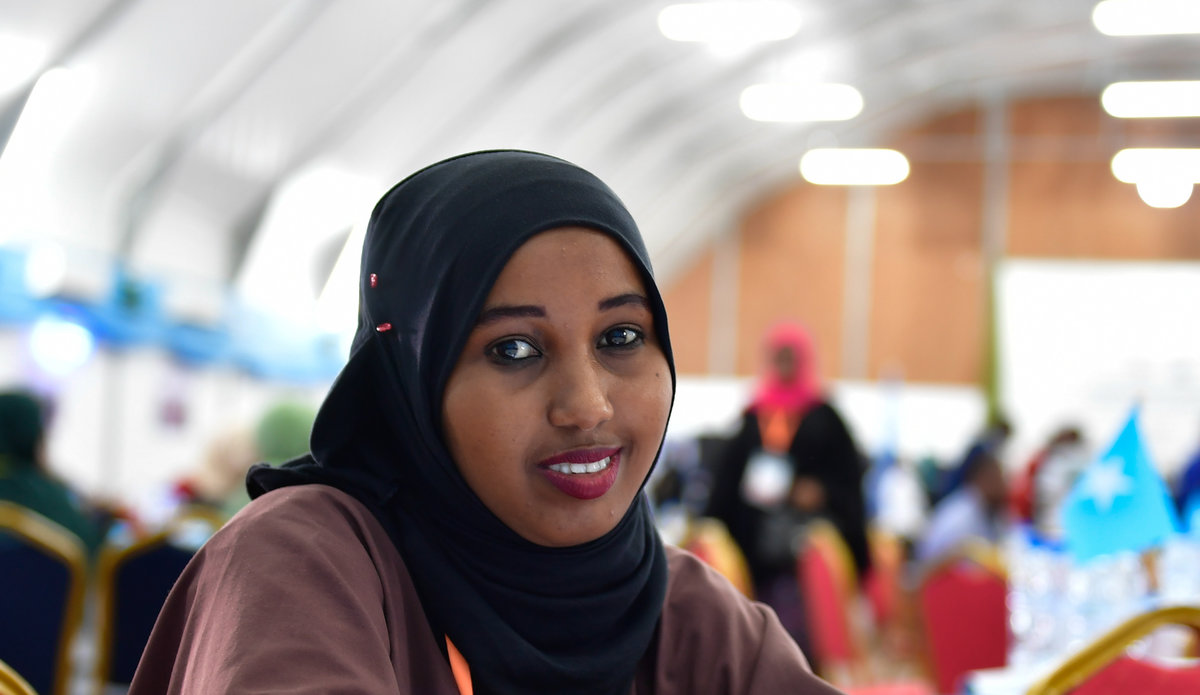Hamdi Ali: A champion for the rights of women and girls in Somalia
In a country which has only recently started making renewed headway against patriarchal traditions, 23-year-old Hamdi Mohamed Ali is passionate about education for girls and women’s rights.
Hamdi is the chairperson of the Somali Professional Girls Union – or, as it is known locally, the ‘Ururka Gabdhaha Aqoonyahannada Soomaaliyeed’ (UGASO) – which brings together young, progressive female professionals, whose objective is to improve the status of women in Somalia.
“Most of the girls do not get a chance to get an education and most of those who get the chance to study end up sitting home without utilizing or developing themselves and the community,” observes Hamdi. “Educating women is the only thing that can prevent family breakdown and early marriage in our community.”
According to UN Women, the world body’s agency dedicated to gender equality and the empowerment of women, Somali women bear an unequal brunt of the hardships occasioned by poverty, conflict and a clan-based culture which promotes strict male hierarchy and authority. This is further exacerbated by religious and cultural limitations on the role and status of women in Somali society, helping lead to deeply-rooted gender inequality.
To ensure her message reaches a large percentage of the population, Hamdi and her colleagues have been regular guests on local television and radio stations, discussing the issues and educating viewers and listeners on gender topics.
“The feedback we receive today is that a lot of girls are beginning to understand that education is prestigious and also developmental,” says the alumna of Salaam University, a private educational institution in the capital, Mogadishu, where she studied medical laboratory science.
“The radio and television programmes have enabled us to achieve our objectives,” she adds. “So many girls who were previously staying home have transformed. They now work or go to school – they are small steps, but the future is positive.”
Apart from the media programmes, Hamdi and other UGASO members organize seminars and conferences on a wide range of topics such as politics and health to broaden women and girl’s knowledge, and to provide them with an opportunity to network.
“We also organize education classes for internally displaced persons (IDPs) and help them financially when we can,” explains Hamdi, referring to the more than two million IDPs within the country's borders, most of them stemming from the impact of a severe drought and conflict with Al Shabaab extremists.
However, it has not been easy for Hamdi, especially in a country that has suffered decades of war and still lags behind on women’s rights and their access to education. She cites early marriage, illiteracy and illegal emigration as the top challenges affecting young women in the east African country – and she has seen these issues up close.
Hamdi recalls that one of her close friends dropped out of college in the hope of emigrating to Europe, but things did not turn out as she had planned. Months later, her friend, who went to Kenya to prepare for the long journey, is still stuck in the capital city, Nairobi, without hope and frustrated.
“Most of the cases of emigration are due to illiteracy and unemployment among the youth. If only there were jobs, so many youths would not be making the treacherous journey to Europe,” she says.
But there are signs of hope, Hamdi notes. Despite the many obstacles, she observes that Somali youth are finally becoming conscious of their potential and are mobilizing themselves to help their homeland overcome some of the challenges it faces.
“Government cannot work without youth because we are the backbone of society,” she says. “Our participation is crucial since we can also play a big role in building the nation.”
 UN
UN





